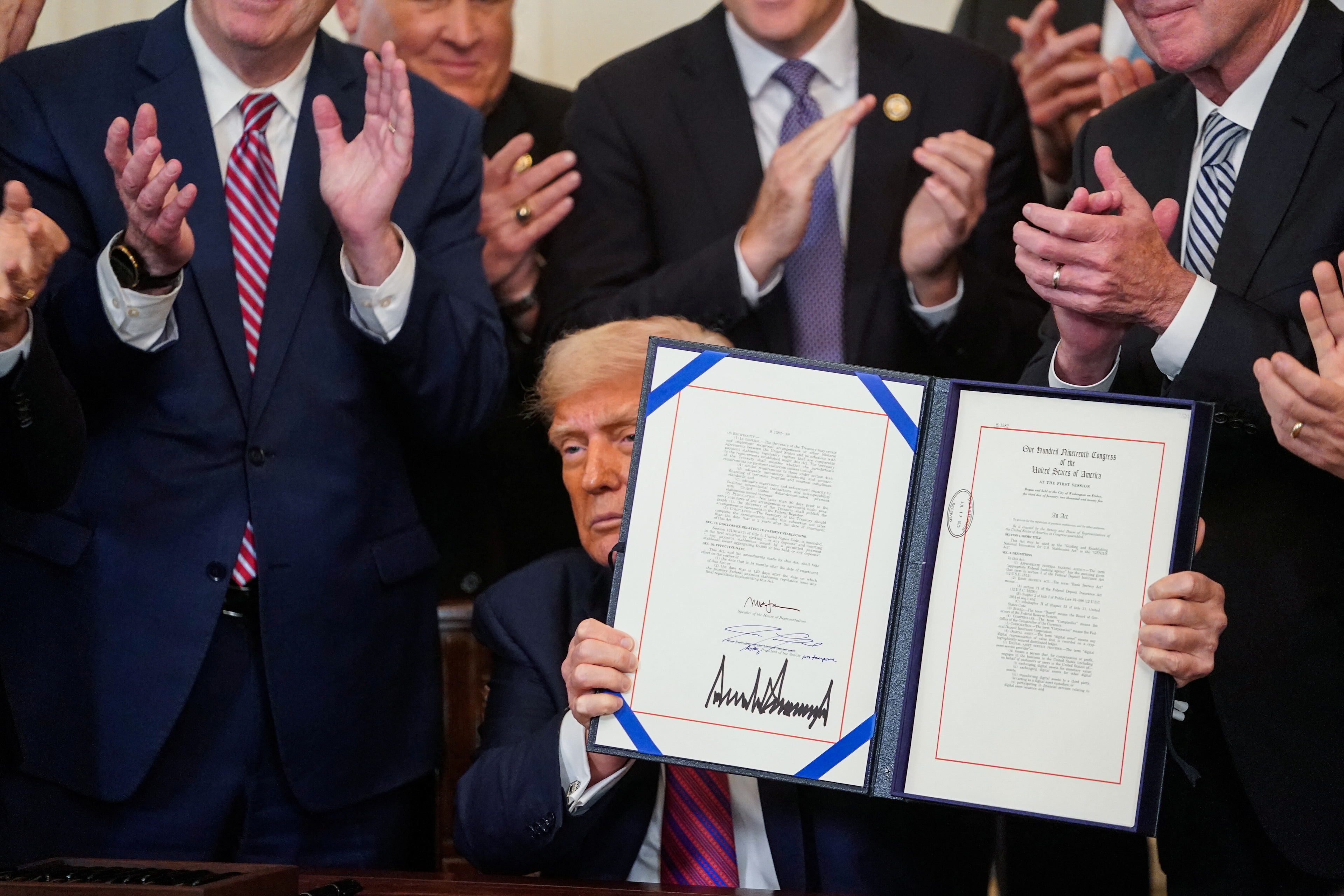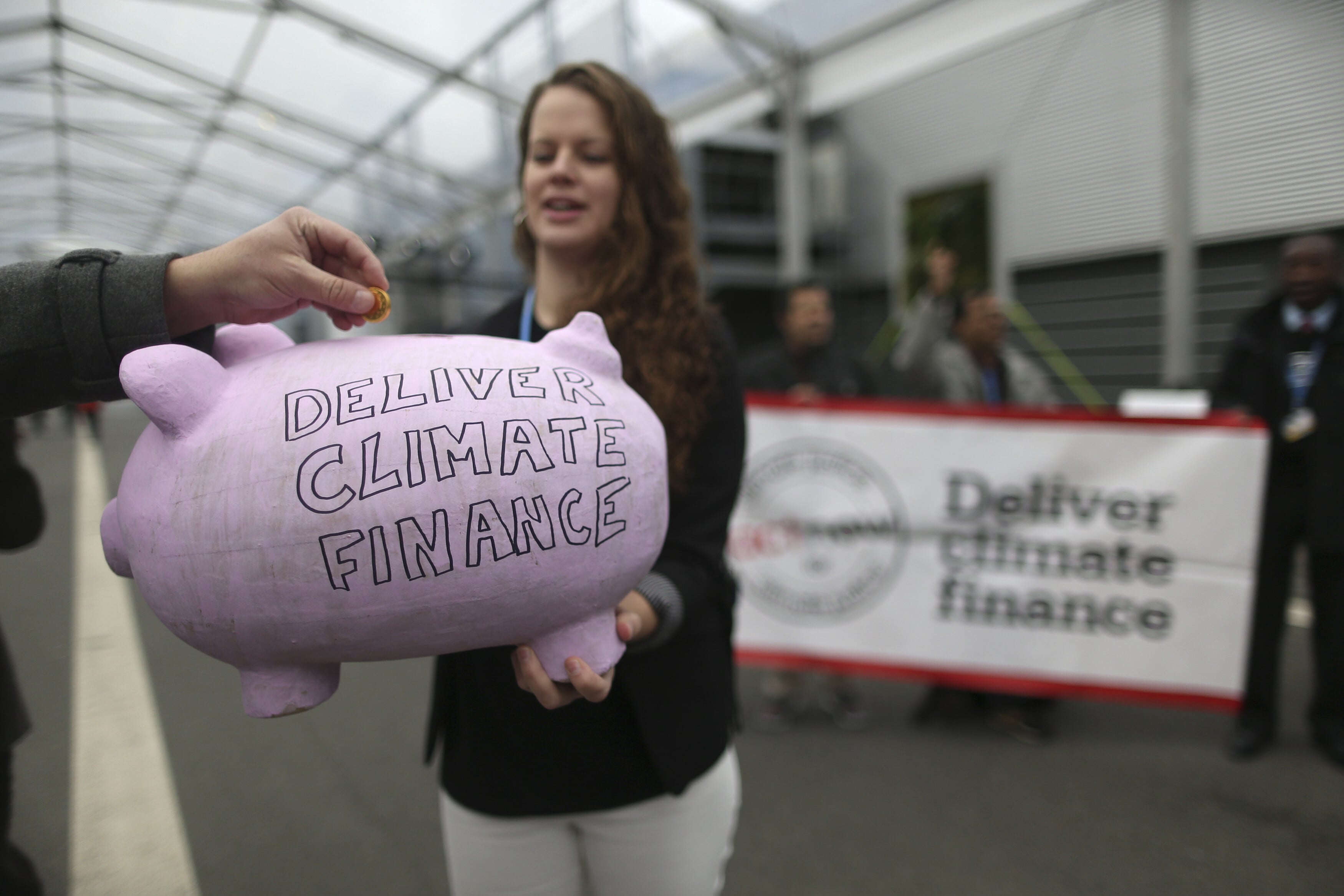Biggest US budget gap since COVID-19, and other economics news to read this week

Top economy stories: US budget deficit; ECB leaves rates unchanged; Business activity in decline across the Eurozone.
Image: Unsplash/Liam Martens
- This weekly round-up brings you the latest stories from the world of economics and finance.
- Top economy stories: US budget deficit; ECB leaves rates unchanged; Business activity in decline across the Eurozone.
1. US budget gap hits $1.7 billion
The US government has announced a $1.695 trillion budget deficit for its 2023 fiscal year. It represents a 23% increase on the previous year, as a result of falling revenues, increased spending on social security and Medicare, along with higher federal debt payments.
It's the largest deficit since the COVID-19 pandemic created a $2.78 trillion deficit in 2021. President Biden's first two years in office saw declines in the deficit figure. Federal spending and debt has been a hot political topic in the United States, which narrowly avoided a default earlier this year.
The Congressional Budget Office has warned that, based on current tax and spending legislation, the US deficit could reach $2.13 trillion by 2030. That wouldn't top the highest-ever level, though, after it hit $3.13 trillion in 2020.
How is the World Economic Forum improving the global financial system?
2. ECB leaves rates unchanged
The European Central Bank (ECB) has left interest rates unchanged, bringing its string of 10 consecutive rate increases to an end.
Since July 2022, the ECB has raised rates by a total of 4.5 percentage points in an effort to tackle high inflation.
Price rises have have cooled, with inflation more than halving in a year, but the economy has slowed significantly, prompting fears of a recession.
"We have to be steady," Christine Lagarde, the bank's president, told a news conference. "The fact that we are holding doesn't mean to say that we will never hike again ... Sometimes inaction is action. A decision to hold is meaningful," she said, adding that it was taken unanimously.
3. News in brief: Stories on the economy from around the world
Inflation in Sri Lanka has slowed to 0.8% compared with the previous year in September, down from 2.1% in August.
Business activity in Germany has declined for a fourth month, with a downturn in manufacturing and services, a preliminary survey has shown.
This fall in demand is reflected across the Eurozone, raising concerns of a recession. The bloc's Composite Purchasing Managers' Index dropped to its lowest since November 2020.
The US economy grew 4.9% in the third quarter of the year. Higher wages from a tight labour market helped drive consumer spending.
New home sales in the United States jumped in September, but high mortgage rates could continue to hit demand.
The Bank of Canada has left its overnight interest rate unchanged at 5%. It had previously raised rates 10 times between March 2022 and July of this year.
The Indian government has said the country's fiscal position remains solid, with revenues from direct and indirect taxes showing "steady growth".
Consumer prices in Tokyo accelerated unexpectedly in October, rising 2.7% in the Japanese capital – a figure that doesn't include fresh food prices, Bloomberg reports.
A new study from the EU Tax Observatory has said that a global minimum tax on billionaires could raise $250 billion annually.
Accept our marketing cookies to access this content.
These cookies are currently disabled in your browser.
4. More on finance and the economy on Agenda
A new report has warned that a global deal to set minimum corporate tax levels is being "dramatically weakened" by loopholes. Read more about the Global Tax Evasion Report and the implications for global tax systems.
Cross-border payments are an essential part of the global financial system, with an expected value of $250 trillion by 2027. However, a fragmented global regulatory system is hitting the ability of technology to facilitate these transactions.
Across the Global South, micro-, small-, and medium-sized enterprises are vital to help meet demands for new jobs. With the right level of support, small businesses can help tackle the global jobs crisis, writes Juan Carlos Thomas, Vice President Entrepreneurship & New Ventures at TechnoServe.
More on Financial and Monetary SystemsSee all
Sandra Waliczek
August 8, 2025
Rebecca Geldard
August 7, 2025
Aurora Matteini and Derek Baraldi
August 6, 2025
Sandra Waliczek and Harry Yeung
July 29, 2025
Pranidhi Sawhney and Adam Skali
July 29, 2025
David Carlin and Sourajit Aiyer
July 28, 2025





